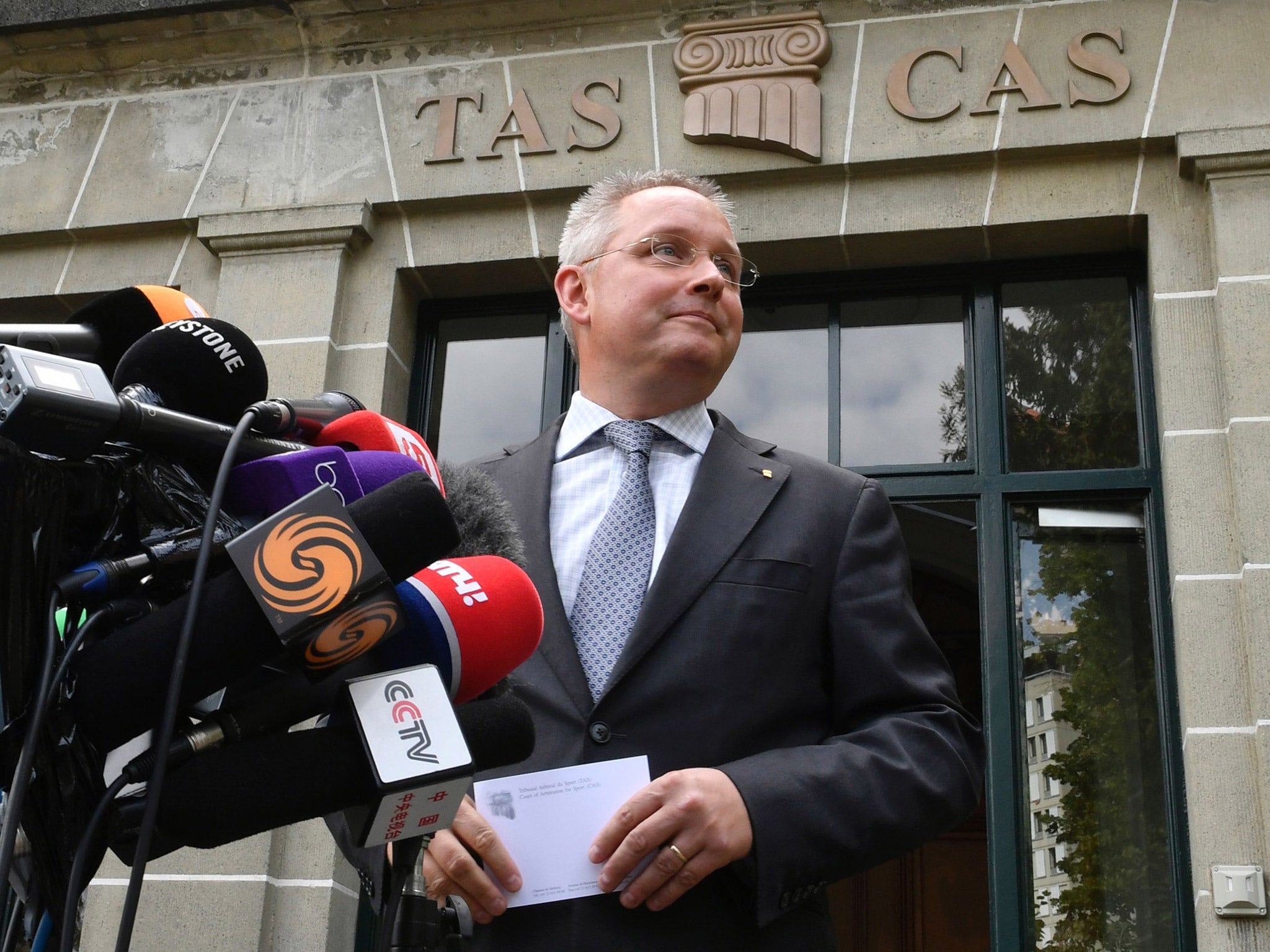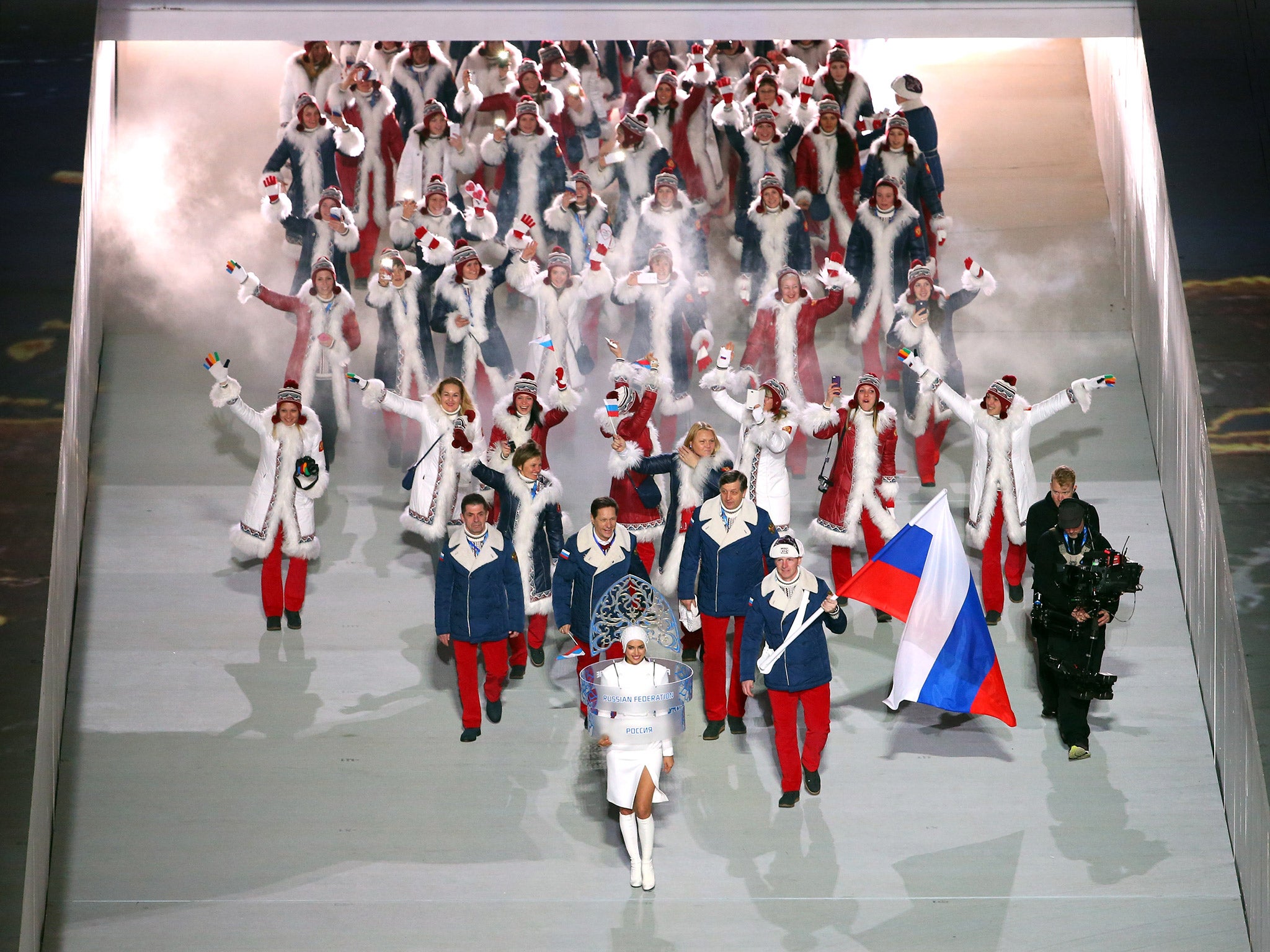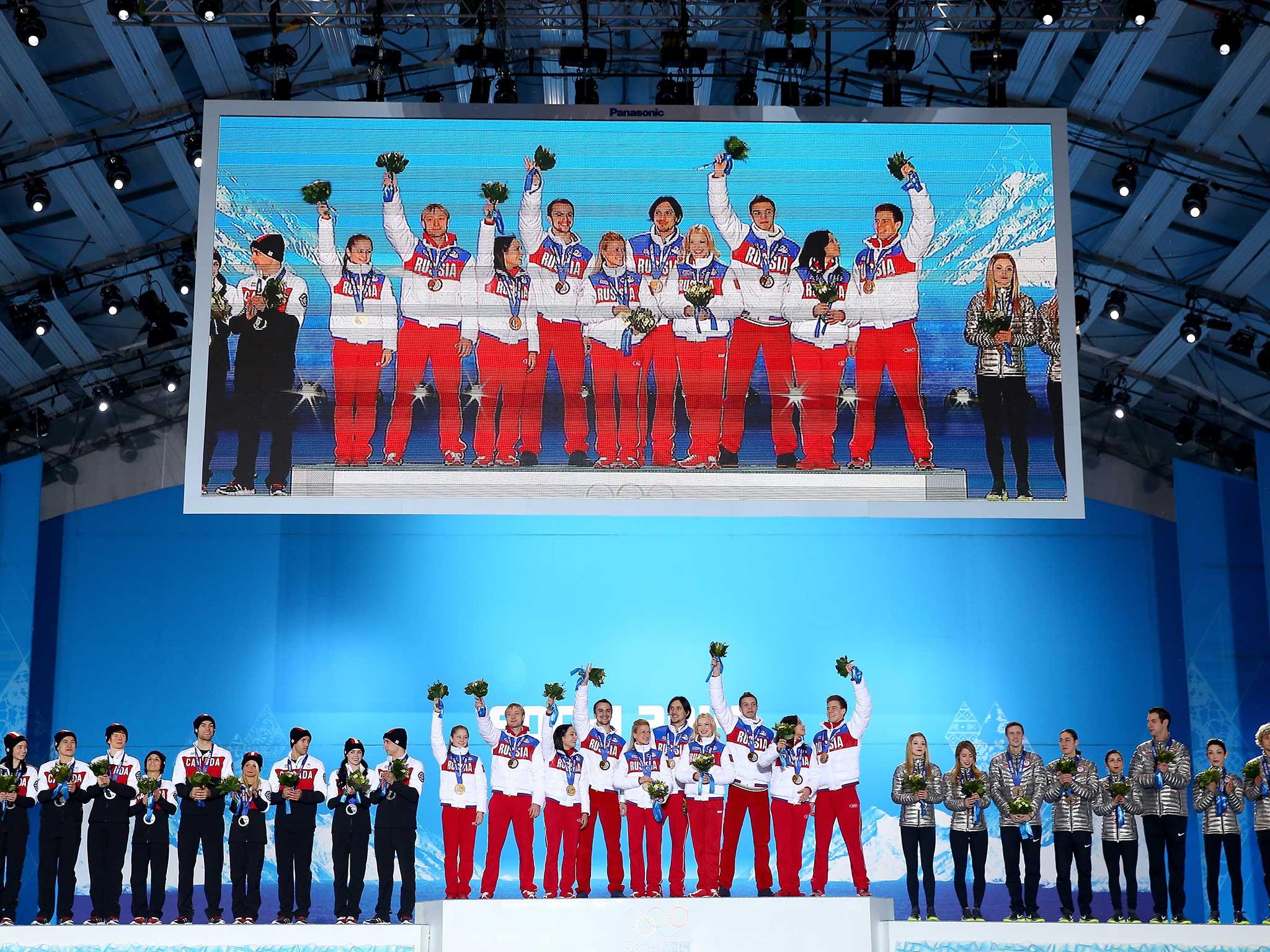Russia faces blanket Rio 2016 ban after losing appeal against IAAF ruling on track-and-field athletes
The IOC will make a final decision on Russia's participation at Rio 2016 within the next week

Your support helps us to tell the story
From reproductive rights to climate change to Big Tech, The Independent is on the ground when the story is developing. Whether it's investigating the financials of Elon Musk's pro-Trump PAC or producing our latest documentary, 'The A Word', which shines a light on the American women fighting for reproductive rights, we know how important it is to parse out the facts from the messaging.
At such a critical moment in US history, we need reporters on the ground. Your donation allows us to keep sending journalists to speak to both sides of the story.
The Independent is trusted by Americans across the entire political spectrum. And unlike many other quality news outlets, we choose not to lock Americans out of our reporting and analysis with paywalls. We believe quality journalism should be available to everyone, paid for by those who can afford it.
Your support makes all the difference.Pressure continued to build on the International Olympic Committee (IOC) to issue Russia with a blanket ban from the Rio de Janeiro Olympic Games, as the federations of one of the leading sports refused to confirm that it would make such a decision unilaterally.
Russia lost it's Court of Arbitration for Sport (CAS) appeal on Thursday against an Olympic ban on its track and field athletes - a decision which adds pressure on the IOC to exclude the country entirely from next month's games. But with the IOC – which is expected to reveal its decision on Sunday - still possibly ready to leave the decision to individual sports, swimming’s world governing body, FINA, refused to say whether it would support excluding Russians.
FINA is heavily subsidised by Russian investment, with a substantial amount of cash ploughed into the sport when the World Championships were hosted in Kazan, western Russia, in 2015. The governing body was openly critical of several anti-doping agencies early this week for demanding Russia be banned from Rio.
On Thursday, FINA did not respond to The Independent’s inquiries about the CAS decision – or to a report by the Daily Mail that John Leonard, head of the World Swimming Coaches Association, had emailed FINA’s executive director early in 2015 warning of Russian state-sponsored doping – only to have his claims dismissed. FINA went ahead with the Kazan World Championships after Leonard’s correspondence.
A number of other individual federations are dependent on Russia for funding – including the European football governing body Uefa, who count Gazprom as a major funder and are promoting the qualifications of Russian sports minister Vitaly Mutko on their website, despite Mutko being named 21 times in the damning Richard McLaren report which on Tuesday detailed endemic Russian state-sponsored cheating.
With such uncertainty surrounding individual sports’ intentions, the IOC president Thomas Bach – a known ally of Russian president Vladimir Putin – was urged to issue a blanket ban.
Four-time British Olympic rowing champion Matthew Pinsent has said it would be a 'nonsense' if Russia was not issued with a blanket ban from the Rio Games.
“I think it's got to the point where any other option would be a nonsense,” he said. “The counter argument is how much worse would a crime against sport have to be for a nation to be stopped from going? What is worse than what they did? Not only were they doping, not only was it state-sanctioned, they were then circumventing the very labs that are there to catch you at the Games, and in Sochi while the Games were going on they were doing it, brazenly.
“To ban a country outright is a huge step but given what’s apparently happened – I mean the Russians haven’t come up with any evidence to say ‘nah, nah, nah that didn’t happen’. So if that’s what went on, you think, ‘well what sort of a thing do they have to do to get a ban. How bad can it be before you say ‘enough’? But it’s a mess. If you take the Russians out who do you put in their place?
“If it was up to me I would have pulled the trigger a while ago but you are always worried that if it doesn’t legally stand up it could come back to bite you. Now CAS are onside you are on stronger ground. But what about the athlete who hasn’t lived or trained in Russia and has passed every test? It is an imperfect situation.”

Daley Thompson, arguably Britain greatest athlete, urged the IOC to “save” sport by banning the entire Russian team.
“I know what the IOC should do,’ said the former decathlete. “They must show some proper guts by expelling the whole team — every sport. The IOC should not placate and prevaricate. But I am concerned that they will say that it is not up to them, and abdicate all responsibility for something they are supposed to be in charge of.”
Read more
CAS stressed that its decision was not binding on the IOC, which has the final say as the supreme organiser of the games. “The door is open for the IOC to decide, to determine even on a case-by-case principle whether these athletes are eligible or not,“ CAS general secretary Mattieu Reeb said.
The IOC said it would ”study and analyse the full decision“ and make its own final ruling on the participation of Russian athletes ”in the coming days.“ The Olympics open in Rio on 5 August.

The Kremlin said it deeply regretted the CAS decision. Mutko – whom the IOC has already banned from Rio - said it would be challenged in civil courts. ”In my view, it's a subjective decision, somewhat political and one with no legal basis,“ he was quoted as telling the Tass news agency. The IOC could ban the Russia team outright based on Article 4.5 and 4.6 of it's Olympic charter. Article 4.5 warns national Olympic committees that, while they can work with governments, “they shall not associate themselves with any activity which would be in contradiction with the Olympic charter”. Article 4.6 states they “must preserve their autonomy and resist pressures of any kind which may prevent them from complying with the Olympic charter”.
Join our commenting forum
Join thought-provoking conversations, follow other Independent readers and see their replies
Comments